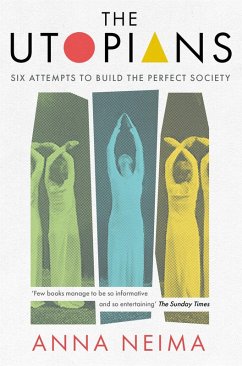
An Ordinary Man (eBook, ePUB)
The True Story Behind Hotel Rwanda

PAYBACK Punkte
5 °P sammeln!
Confronting killers with a combination of diplomacy, flatter, and deception, Paul Rusesabagina managed to shelter more than 1,200 Tutsis and moderate Hutus while homicidal mobs raged outside with machetes during the Rwandan genocide. His autobiography explores the inner life of the man in a way the film could not. Rusesabagina discusses the racial complexity within his own life - he is a Hutu married to a Tutsi - and his complete estrangement from the madness that surrounded him during the genocide. The book takes the reader inside the hotel during those 100 days, relates the anguish of those ...
Confronting killers with a combination of diplomacy, flatter, and deception, Paul Rusesabagina managed to shelter more than 1,200 Tutsis and moderate Hutus while homicidal mobs raged outside with machetes during the Rwandan genocide. His autobiography explores the inner life of the man in a way the film could not. Rusesabagina discusses the racial complexity within his own life - he is a Hutu married to a Tutsi - and his complete estrangement from the madness that surrounded him during the genocide. The book takes the reader inside the hotel during those 100 days, relates the anguish of those who saw loved ones hacked to pieces, and describes Rusesabagina's ambivalence at pouring the Scotch and lighting the cigars of killers in the Swimming Pool bar, even as he hid as many refugees as possible inside the guest rooms upstairs. Never-before-reported elements of the Rwandan genocide will be disclosed in this book, such as the lack of interest of the international community , and the disgraceful behavior of some of the UN peacekeeping troops, who purchased the cars of the Tutsis who had taken shelter inside the hotel. An Ordinary Man draws parallels between what happened in Rwanda with other genocides throughout history and asks the question: What causes an entire nation to go insane? It also offers an inside look at the problem of genocide and the responsibilities of ordinary people caught up in extraordinary events. It concludes with an exploration of the tremendous power of words to sow hatred, but also to bring life and hope.
Dieser Download kann aus rechtlichen Gründen nur mit Rechnungsadresse in A, B, BG, CY, CZ, D, DK, EW, E, FIN, F, GR, HR, H, IRL, I, LT, L, LR, M, NL, PL, P, R, S, SLO, SK ausgeliefert werden.













